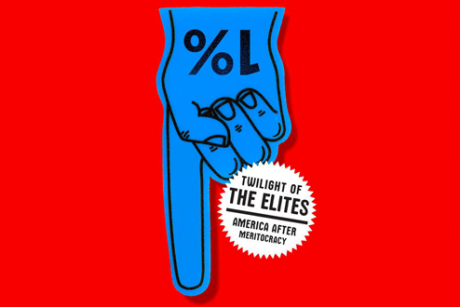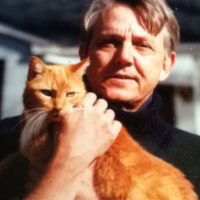
The single greatest myth in what many call “the American Dream” is the notion that, by dint of hard work and the right set of moral principles, anyone can rise to the top of the heap. Worshippers at this shrine of “self-advancement” – unlike folks in Europe, in particular, where social mobility is recognized as a fiction papered over a reality little changed since feudalism – have only to point to tycoons like Andrew Carnegie, a working class immigrant, and politicians like Barack Obama, the African American son of an abandoned mother. They would have us believe that the exception proves the rule. If one can do it, all can do it.
Quite aside from the mathematical impossibility of the social mobility fairy-tale actually coming true for most of us is the saga of what typically happens to the personalities and values of those who rise from humble beginnings to great heights of wealth or power. It is the sociology and psychology of this particular group in society that journalist and MSNBC talk show host Christopher Hayes chooses to examine in “Twilight of the Elites.”
“Meritocracy” (or rule by “the best and the brightest”) is a central tenet of the classical, liberal democracy which replaced hereditary rule (generations of inbred bleeders and imbeciles) during the last hundred years. The term itself is only about 75 years old, coined in England, where increasing numbers of working class traitors were willing to be made well-paid toadies of the ruling class.
Citing catchy axioms like “Gresham’s law” and Robert Michels’ “Iron law of oligarchy,” Hayes dissects with vivid detail the increasingly dysfunctional role of elites in later-day capitalism.
Elites are roundly despised by the public. Hayes suggests that the tea party and Occupy Wall Street have more in common than might first appear. Both hate the smug righteousness and overweening arrogance of groups of people who for their whole life have been told that they are smarter and better than the rest of us and are now making a mess of everything.
From self-serving management in banks and energy companies to sports figures juiced on performance drugs to politicos beholden to special interests, Hayes’ treatment of corruption and its causes and symptoms fills a whole chapter entitled “Moral Hazards.”
Hayes closes the book with praise for the Occupy Wall Street movement and its stumbling first steps toward truly democratic, even utopian, self-organization.
Unfortunately, his economic analysis goes little further than the popular but superficial 99 to one percent contradiction that became the Occupy slogan.
The critical mechanism of “exploitation” so central to a meaningful, class-based analysis is completely absent.
A far more succinct critique of “meritocracy” can be found in the Wikipedia entry for “Horatio Alger myth,” but for a detailed and engrossing description of what it is like to live inside an “elite” and watch it fail and bring down a whole society around it, “Twilight of the Elites” is the best read to come along in quite a while. Hopefully it will become as popular as the seminal and now classic “The Power Elite” and “White Collar, the American Middle Classes” by C. Wright Mills.
by Christopher Hayes
2012, Random House, hardcover, 304 pages, $26












Comments